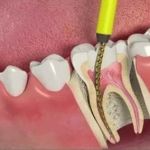1. Understanding Cavities and Their Causes
Cavities, also known as dental caries or tooth decay, are damaged areas on the surface of your teeth caused by bacteria. These bacteria feed on sugar from food and drinks, producing acid that erodes the tooth enamel. Over time, this erosion can lead to holes, or cavities, which can cause pain and discomfort.
Common causes of cavities include poor oral hygiene, frequent snacking on sugary foods, and not brushing or flossing regularly. While cavities are common, they can be prevented with proper care and attention.
2. Early Signs of Cavities and When to Act
The earlier you notice signs of cavities, the more likely you can address them before they worsen. Some common early signs include:
- Tooth sensitivity to hot, cold, or sweet foods
- Visible holes or dark spots on your teeth
- Persistent toothache or discomfort when chewing
- Bad breath or an unpleasant taste in your mouth
If you experience any of these symptoms, it's crucial to take action quickly. Early intervention can help prevent further damage and reduce the need for extensive dental work.
3. Home Remedies to Help Treat Cavities
While professional treatment is necessary for severe cavities, there are some home remedies that may help treat early-stage cavities or prevent further damage. Here are a few methods to try:
- Oil Pulling: Swishing coconut oil in your mouth for 15-20 minutes can help remove harmful bacteria and reduce plaque buildup.
- Fluoride Toothpaste: Using fluoride toothpaste helps remineralize the enamel and prevent cavities from worsening.
- Calcium-Rich Foods: Eating calcium-rich foods like cheese, yogurt, and leafy greens can help strengthen tooth enamel and prevent decay.
- Green Tea: Drinking green tea may help fight bacteria that cause tooth decay, thanks to its antioxidant properties.
Remember, these remedies are best for early cavities and should not replace professional dental care. Consult with your dentist to see if these methods are suitable for you.
4. Natural Remedies and Prevention Tips
In addition to the home remedies mentioned, there are several natural ways to help prevent cavities and maintain good oral hygiene:
- Proper Brushing and Flossing: Brush your teeth twice a day with fluoride toothpaste and floss daily to remove plaque buildup.
- Limit Sugary Foods and Drinks: Cut back on sugar to reduce the food supply for cavity-causing bacteria. Opt for healthier snacks like fruits and vegetables.
- Drink Plenty of Water: Drinking water helps rinse away food particles and bacteria, reducing the risk of cavities.
- Visit Your Dentist Regularly: Regular dental checkups and cleanings are essential for detecting cavities early and maintaining optimal oral health.
By adopting these preventive measures, you can reduce the likelihood of developing cavities and keep your teeth healthy for years to come.
5. When to Seek Professional Help for Cavities
While home remedies can be effective for early cavities, there are times when professional dental care is necessary. If you experience any of the following, it's important to see a dentist:
- Severe tooth pain or discomfort
- Visible holes or deep pits in your teeth
- Persistent bad breath or an unusual taste in your mouth
- Difficulty chewing or pain when biting down
Your dentist can evaluate the extent of the damage and recommend the appropriate treatment, which may include fillings, crowns, or other dental procedures. Early intervention can prevent the need for more invasive treatments.
If you're concerned about cavities or need advice on how to protect your teeth, explore our dental care products at Dentistry Toothtruth for expert solutions to maintain healthy teeth.







 Maddison Ave Dental4.0 (83 review)
Maddison Ave Dental4.0 (83 review) Elite Dental Specialists, Joliet, IL4.0 (305 review)
Elite Dental Specialists, Joliet, IL4.0 (305 review) Brunswick Dental Group3.0 (71 review)
Brunswick Dental Group3.0 (71 review) San Fernando & Pacoima Family Dental4.0 (55 review)
San Fernando & Pacoima Family Dental4.0 (55 review) Mid-County Endodontic Group, P.A.5.0 (187 review)
Mid-County Endodontic Group, P.A.5.0 (187 review) Clove Dental Camarillo4.0 (225 review)
Clove Dental Camarillo4.0 (225 review) The Importance of Oral Health Education During Pregnancy for a Healthy Pregnancy
The Importance of Oral Health Education During Pregnancy for a Healthy Pregnancy Best Tips for Brushing Your Teeth Properly for Healthy Gums: Essential Techniques for Oral Health
Best Tips for Brushing Your Teeth Properly for Healthy Gums: Essential Techniques for Oral Health Why Skipping Dental Checkups Can Lead to Bigger Oral Health Problems
Why Skipping Dental Checkups Can Lead to Bigger Oral Health Problems Advantages of Porcelain Dental Restorations
Advantages of Porcelain Dental Restorations How Can Diabetes Cause Tooth and Gum Problems? Preventing and Managing Oral Health Issues
How Can Diabetes Cause Tooth and Gum Problems? Preventing and Managing Oral Health Issues Healthy Habits for Promoting Good Oral Health and Hygiene: Tips for a Healthy Smile
Healthy Habits for Promoting Good Oral Health and Hygiene: Tips for a Healthy Smile